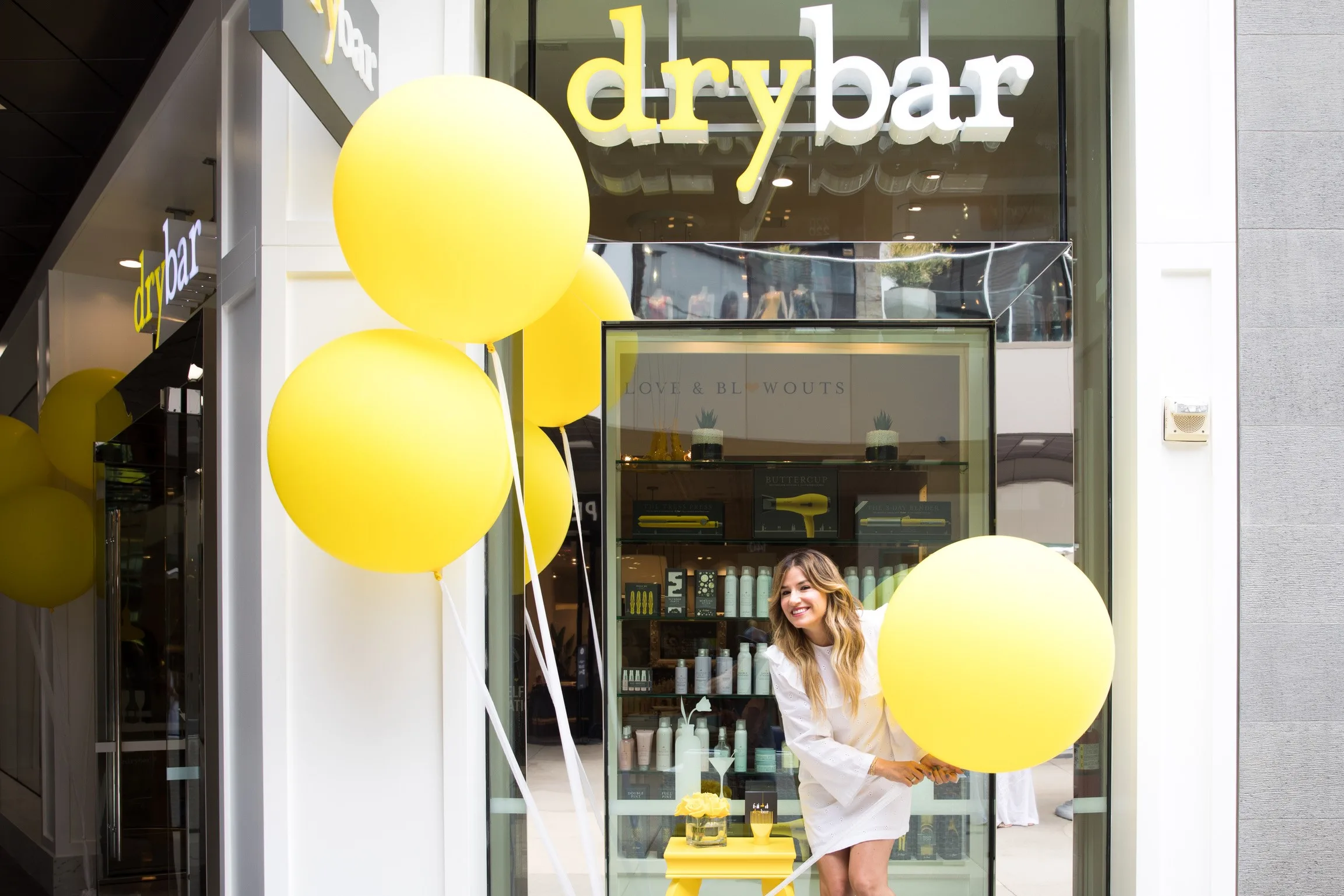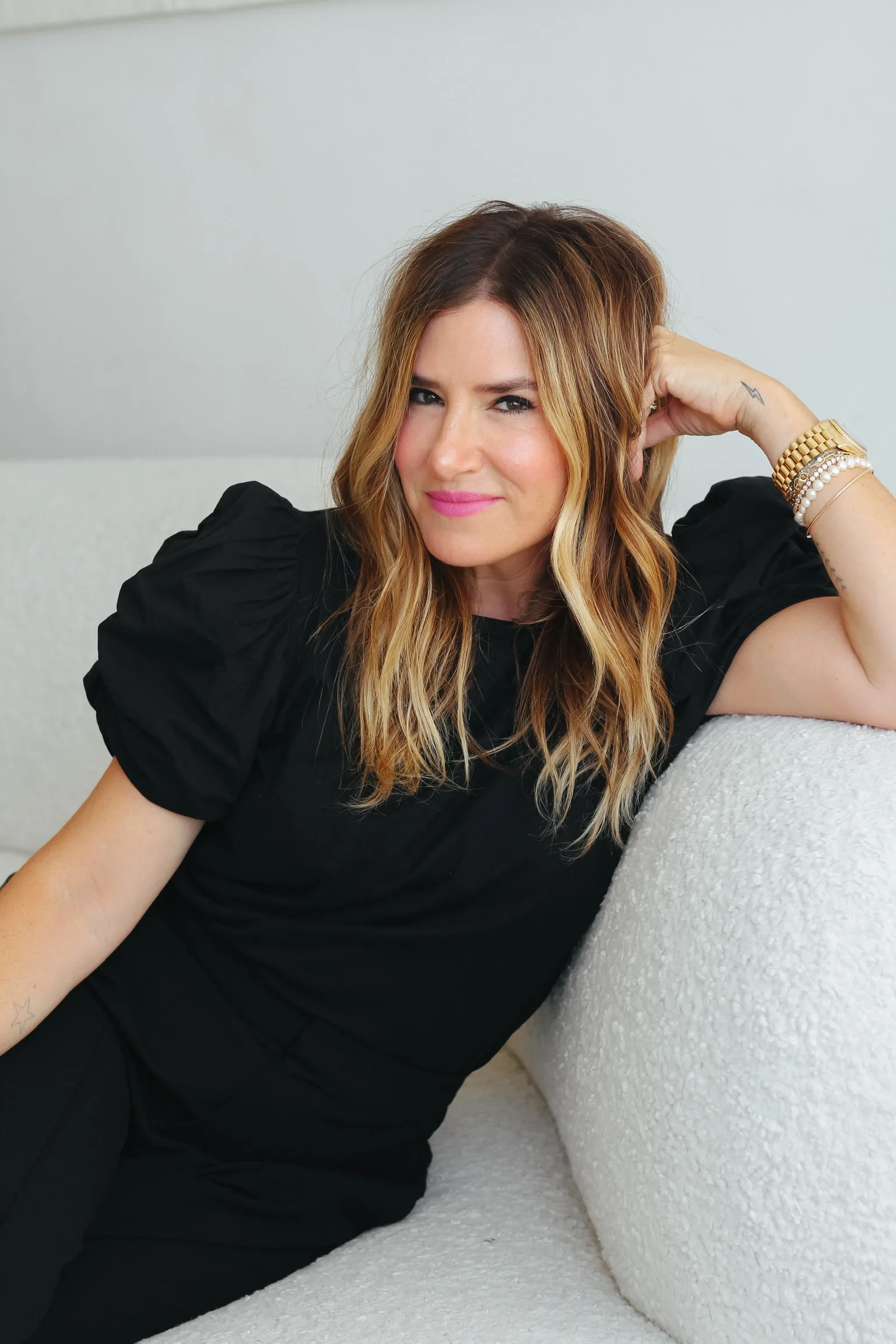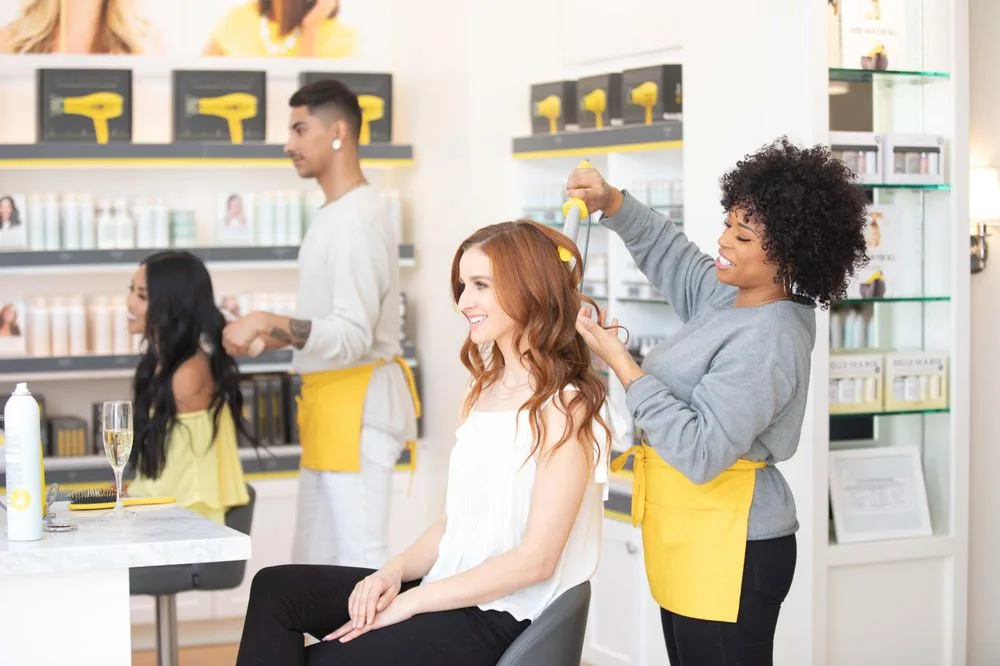Crushing imposter syndrome and finding your niche with Alli Webb

When Alli Webb, founder of Drybar, walked into a boardroom full of men in suits to ask for capital or pitch a business idea, she felt like she didn’t belong. She didn’t go to college. She didn’t have a traditional business background. Flash forward 10 years and Alli has sold Drybar for $255 million and become a successful author, serial entrepreneur, and angel investor.
Her journey proves the path to successful entrepreneurship is actually a superhighway with many lanes, off-ramps, and rest stops. At Yelp’s 2024 Local Business Summit, Alli shared her business challenges and triumphs, getting candid about imposter syndrome, burnout, and preserving her wellbeing. Read her advice, in her own words.
Take calculated risks to achieve your vision
 I was getting so busy in the mobile business, and I was running around town blow drying all my mommy friends—and I was just one person. So I came to this crossroads of like, “Do I hire more people and send stylists out to do the clients that I couldn’t, or do I open a brick and mortar and instead of me going to them, they come to me?
I was getting so busy in the mobile business, and I was running around town blow drying all my mommy friends—and I was just one person. So I came to this crossroads of like, “Do I hire more people and send stylists out to do the clients that I couldn’t, or do I open a brick and mortar and instead of me going to them, they come to me?
And that was really the idea, but to just do blowouts. Especially at that time, 14 years ago, nobody was doing that. So it was definitely risky—the right price point, the right experience, there were so many things that had to line up. But we felt like it was worth a shot, so we decided to take the plunge and open up a physical location.
I already had such a beautiful built-in community of women, who I was blow drying their hair all the time, that I felt confident I would at least get those women. I never would’ve imagined it would turn into what it did and take off the way it did. So nobody was more surprised by the success that came out of all of it than me.
Look inward, even when the world is flying by
As someone who didn’t go to college and didn’t have a traditional background… I really knew nothing in the early days of Drybar, and I feel like I got such an education on the job. We were on a rocket ship, and there was so much excitement, and we were growing and building so fast.
But what I wasn’t doing was a lot of the internal work because I was on this rocket ship, and I was so excited and busy and crazy, and raising my kids and raising Drybar, that I didn’t stop and take a whole lot of inventory of what was happening for me, which was that I wasn’t in a really happy marriage. Neither one of us were happy, and we were just kind of floating along. So we decided to pull the plug.
Then my son went into rehab, and I went into a depression. Luckily, we had grown a pretty significant team of people who were basically running the company at that point. So I had the good fortune of being able to step away a little bit and deal with all the stuff that was going on in my personal life. It was crazy, and I really struggled with getting a divorce. I didn’t want to be a divorced person. I had all this weird shame around it, and I don’t now.
The more I talked about it, and the more I was transparent about it, I recognized how much it was relating and resonating with other women. My life looked really good, and in a lot of ways it was, but the undercurrent of it all was really challenging and sad and hard.
During all the hardships that I went through, I really came to believe that the more transparent we are as humans about what’s going on with us, the better as a society we become. And I really believe in the idea of the collective. If we’re showing up as our best self and we’re doing the work on ourselves, then we all rise.
Tell imposter syndrome it has no seat at your table

I sat in a lot of boardrooms with men in suits who just did not get what I [wanted to do with my business]. They were like, “What? You’re blow drying hair?” They were so confused, but we already had maybe seven or eight stores at that point, and they were like, “Well, why don’t you do makeup or sell them this or sell them that?”
I’m like, “No, no, no. We do one thing. We do it really well.” But they saw it as: you have this captive audience of 100 women a day; you could sell them so much other stuff. And I was like, “Well, I don’t want to. I don’t want to sell out. I want to be very true to what we do.” And I knew how hard it was to run that business already as is.
It was an interesting landscape, and I was really lucky to be surrounded by people who were helping me come into my own, where I felt I didn’t really know how to hold my own in these rooms. I had that kind of imposter syndrome in the early days of, “These guys are smarter than me. They know more than me.”
I didn’t go to college. I didn’t have the traditional [background], but I had a really good idea. I knew how to execute it because of watching my parents run their business. So I very quickly squashed that imposter syndrome of not thinking I was smart enough or good enough to be in those rooms and never looked back.
If you’re suffering from imposter syndrome, that means you’re doing something that you haven’t done before and is good for you. You’re taking on this role or this opportunity that’s new to you. It’s foreign, so you’ve got to learn it a little bit—but you will, and it’s an amazing opportunity.
Take care of yourself as well as your business
As entrepreneurs, we get very obsessive about things. I am like a dog with a bone when I want something or I’m trying to create something. There’s this adrenaline that kicks in that you don’t think of it as work. The mistake I made that I think a lot of entrepreneurs make… is [not] finding your stride or your flow and [reminding yourself], “I am not going to give every single thing I have of myself to this business.”
It’s almost unavoidable when you’re in real startup mode that you have to give a lot, but you also have to recognize that in order for you to be your best, you do have to take care of yourself in whatever capacity that means.
It took me many years to realize that I didn’t have to be sitting in my office or at the shop at 9 a.m. I started to play around with my schedule where I would drop off my kids because that was important to me, go to the gym in the morning, or go on a walk.
Especially as women, we don’t give ourselves permission to go and do the things that we need that make us feel rejuvenated and recharged. We just keep going. The big unlock here is learning the things that deplete you and the things that give you energy.
Find that thing that lets you stop and be like, “What’s happening? What does my body feel like?” Even when I’m trying to make a decision on something I’m going to do, I will really stop and go inward and be like, “How does my body feel? Am I getting anxiety anywhere? Is it excitement in a good way?”
I didn’t think of any of this back in the day. I was just so busy with my kids and my marriage and the company that I didn’t give myself any space for any of this stuff. So now, in this new iteration of me and my life and what I’m doing, it’s like I have more space, and I’m grateful for that. You will inevitably burn yourself to the ground if you don’t stop and take care of yourself. And you can rise again for sure, but it will take a toll.
Really listen to customer feedback

One of the best pieces of advice I’ve ever gotten was, “Feedback is a gift.”
As humans, we don’t always want to hear the things that we’re not doing well, myself included. But if you can get past your ego of “this thing that I hold so near and dear to my heart and somebody’s telling me it’s not good or it’s not good enough…” and really accept feedback as a gift and welcome it, it’s so advantageous in so many ways.
At Drybar, we would really elicit feedback. After you got a blowout, we’d send you an email right away that said, “Tell us the good, the bad, the ugly. We want to hear it all.”
And I always really urged my team to look at it like that—we’re going to take this feedback and we’re going to learn from it.
And where there is smoke, there is fire. Always. So if one person, just one, has a complaint about something, it is worth being looked into. Is it always like you change your whole business model? No. But not researching and not digging into an issue that someone sees is such a mistake.
I remember seeing it where somebody would write a review that was not great, and the owner would be defensive back. I’m like, “What are you doing? Don’t do that. Learn from it. Call that person.” It’s a love-hate thing for me. You don’t want to be told you are not good or you’re not doing something well, but if you are, it is such a gift because it’s such an opportunity to grow and be better in your company, to get better and be more successful. So I’m a big proponent of taking it in.
Photos courtesy of Alli Webb